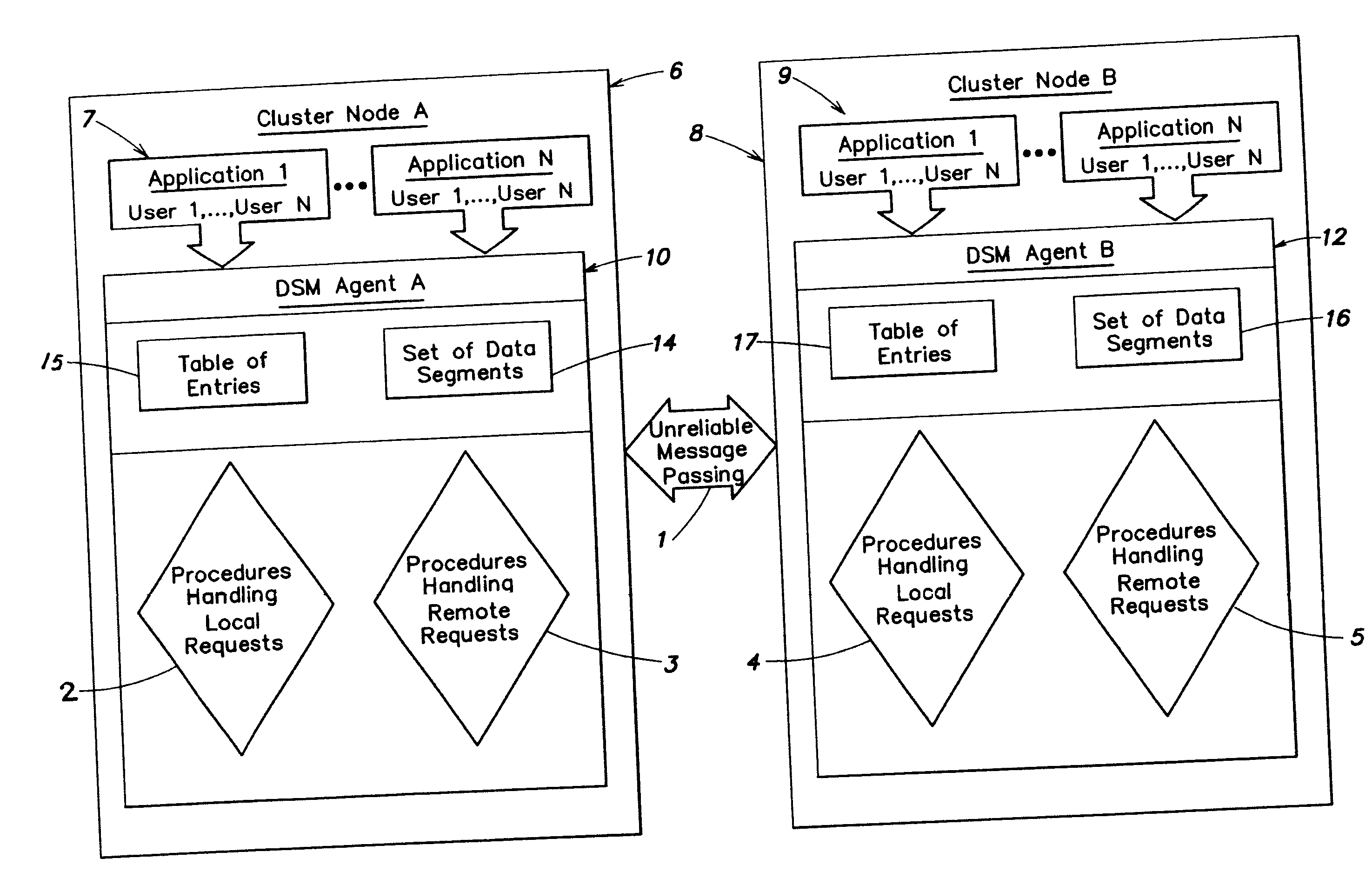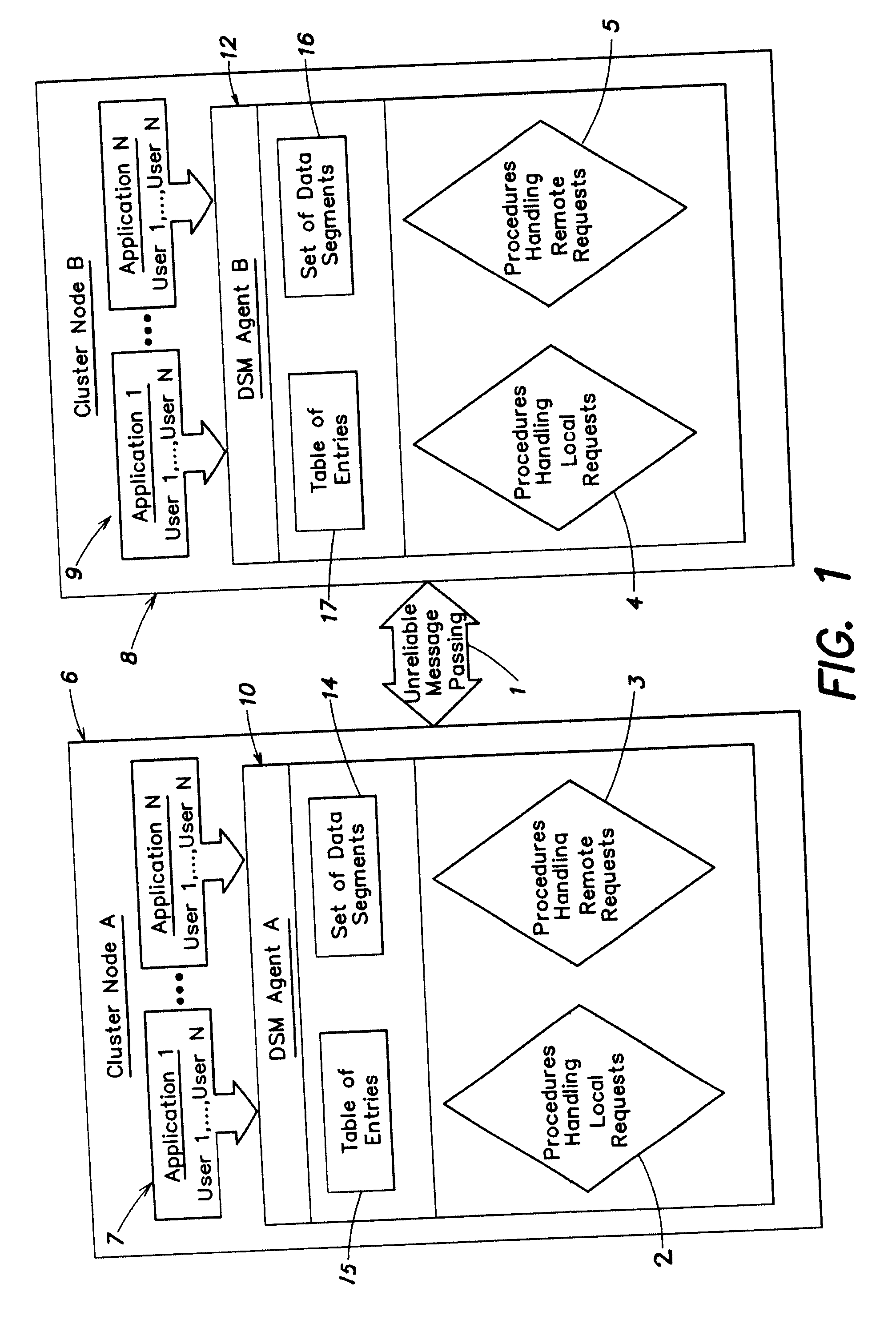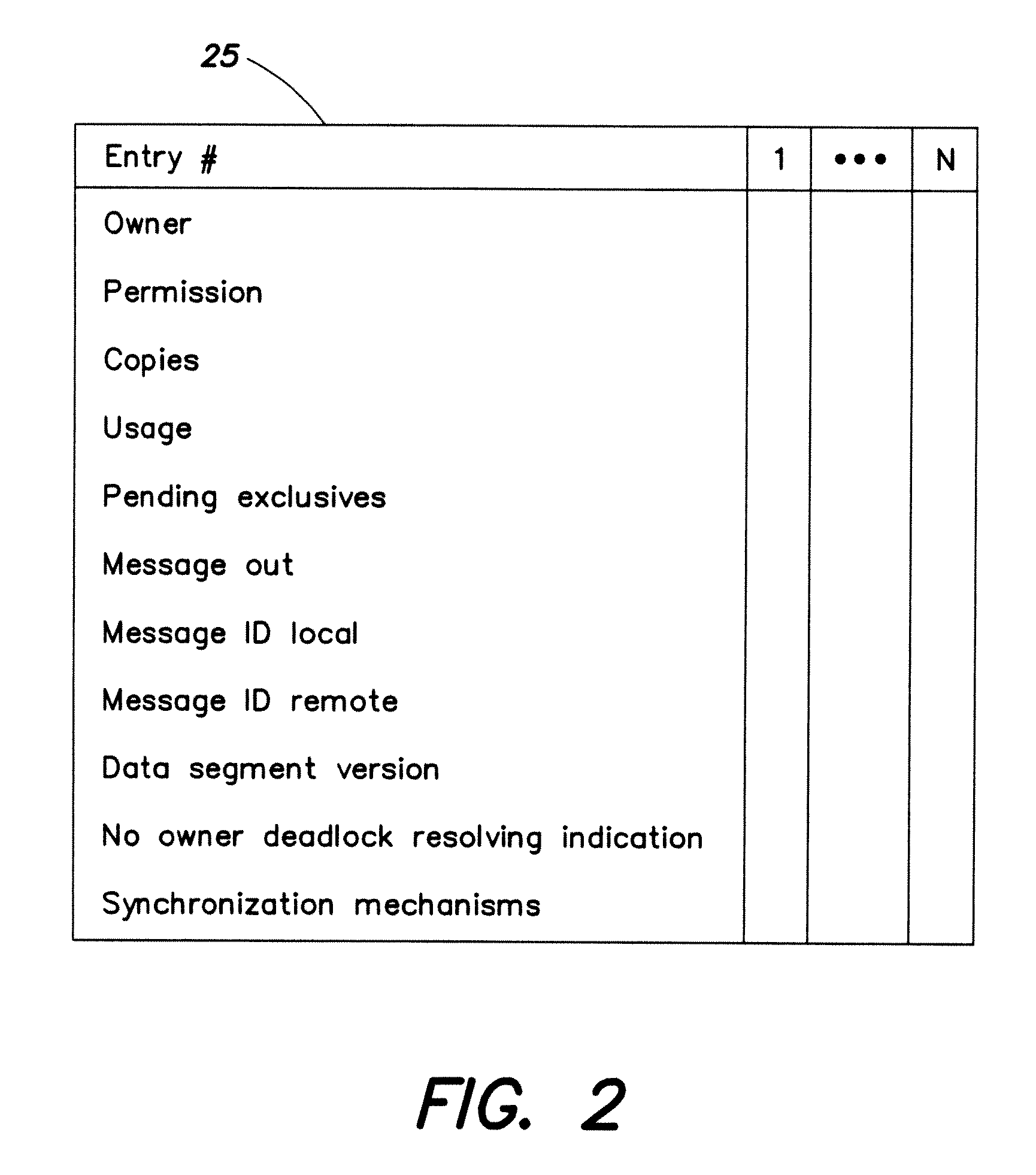Transactional Processing for Clustered File Systems
- Summary
- Abstract
- Description
- Claims
- Application Information
AI Technical Summary
Benefits of technology
Problems solved by technology
Method used
Image
Examples
case 3 (
[0112]Case 3 (180): Agent A 182 sends a request 184 that reaches agent B 186 after B sends a request 196 on the same data segment. Both requests 184, 196 become blocked on the remote side as their handling procedures identify an ongoing messaging session. One of the two users that triggered sending the requests times out and the agent of the timed out user eventually processes the request of its counterpart agent and sends a response. Assume without loss of generality that the user timing out 190 is affiliated with agent A, the response 198 reaches the user affiliated with agent B before timing out 199, in which case only agent B becomes the owner 194, since agent A shall discard 197 the response 188 to the original request 184 of agent A.
case 4 (
[0113]Case 4 (200): This case is similar to case 3, except that the response 218 from agent A 202 reaches the user affiliated with agent B 206 after timing out 219, in which case both responses 218, 208 sent by both agents are discarded 215, 217 by their remote agents. Therefore both agents are not the owners 212, 214 of the data segment.
A-6. Resolving a No Owner Messaging Deadlock
[0114]In the scenario of case 4, both agents 202, 206 send concurrent permission requests 204, 216 on a same data segment not owned by both, and both responses 208, 218 are discarded 217, 215, thus failing both requests and failing to recover ownership of that data segment 212, 214. This scenario is referred to as a no owner messaging deadlock. Data segments that are accessed with high contention from both agents, for which ownership is lost, may exhibit sequentially repeating occurrences of this scenario, thus detrimentally affecting performance. To improve performance the DSM algorithm of the present emb...
PUM
 Login to View More
Login to View More Abstract
Description
Claims
Application Information
 Login to View More
Login to View More - R&D
- Intellectual Property
- Life Sciences
- Materials
- Tech Scout
- Unparalleled Data Quality
- Higher Quality Content
- 60% Fewer Hallucinations
Browse by: Latest US Patents, China's latest patents, Technical Efficacy Thesaurus, Application Domain, Technology Topic, Popular Technical Reports.
© 2025 PatSnap. All rights reserved.Legal|Privacy policy|Modern Slavery Act Transparency Statement|Sitemap|About US| Contact US: help@patsnap.com



